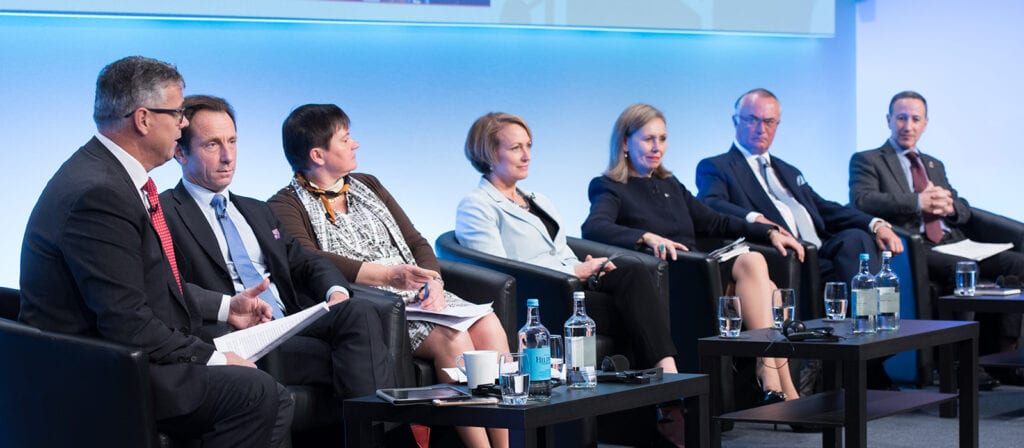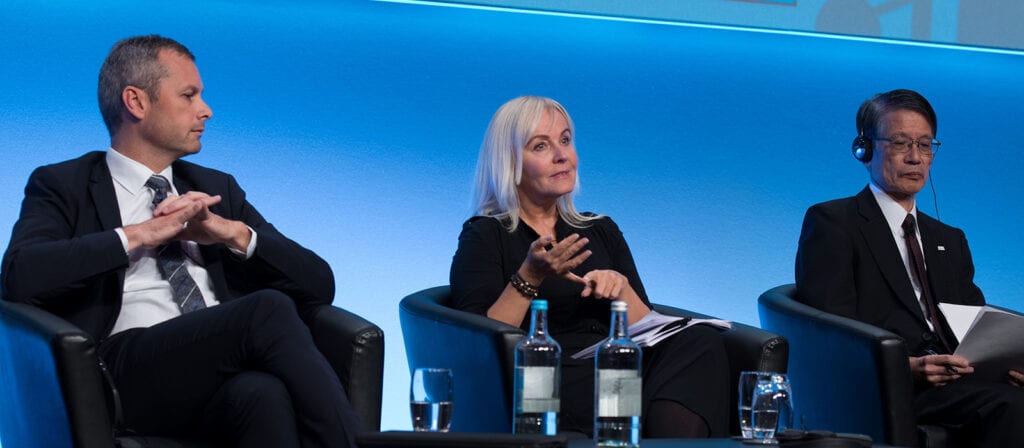The battle against developmental and environmental degradation presents both challenges and opportunities for positive change. Many insurance companies have already found important and innovative ways to contribute to finding solutions.
The ecosystem’s capacity is currently being exceeded. This is evidenced by rising temperatures, degradation of 40% of the planet’s agricultural land, deforestation, damage to the oceans, and transmission of plastic from fish to humans. Malnutrition rates have increased to 11% of the global population, and 9% have no access to clean water. These changes are non-linear and abrupt. Every year, 26 million people are pushed into poverty as a result of climate-related events.
To tackle these problems, carbon emissions must reduce and the economic model of perpetual growth must be abandoned. A carbon law is required, demanding emissions be halved every decade. The universality of climate change implies the need to harness intelligence to build resilient societies and cities. We must look to ourselves and – to quote Gandhi – “become the change that we want”, or need.
Governments are less proactive than is required and, in any case, they alone could not provide all the transformational change that is needed. That will require us to embrace the concept of a circular economy, supported by partnerships, to create linear progression. Developing a regenerative, distributive ecosystem requires us to specify how many benefits can be included in any project or company or system, rather than how much can be extracted in the shortest time for benefit of the lowest number of people. We need to make investments that create long-term, social and environmental value, to eliminate the goal of GDP growth, and seek out other, non-monetary forms of “wealth”.
The greatest barriers to action are risk. But the role of the insurer is to manage risk, so its biggest client is planet Earth. Between 1995 and 2015, 90% of disasters were weather-related. Furthermore, the severity and frequency of such disasters are set to increase. The impact of these disasters is worst for the most vulnerable.
Insurers are the custodians of over USD 31 trillion in assets under management; they also understand the various types of risk and how they can be mitigated. Insurers need to invest in asset classes that protect the planet and thus their portfolios, but currently insurers representing 40% of global premium income are not taking remedial action to adjust their portfolios. Only 20% of the industry (by premiums) have signed up to the UNEP FI’s Principles for Sustainable Insurance (PSI), and less than 1% of investments are held in “green” assets.
The environment, development and humanitarian sectors are still in silos, especially for funding, but need to be linked. ICMIF is to be applauded for its involvement in supporting the Insurance Development Forum (IDF), which is an important mechanism to drive change.
Impact investing can reach new dimensions. Governments and regulators need to play their part too. There needs to be more calls on companies to disclose information on their risk management; perhaps the Financial Stability Board’s (FSB) voluntary assessment of risk needs to be made mandatory and a benchmark for sustainability should be adopted by the market. An additional USD 2 trillion per year in resilient infrastructure investments is required.
Consensus amongst a wide range of stakeholders and communities, including science, non-governmental organisations, campaign groups, and so on, will be required. Intelligent, compassionate risk management will be required. Insurance companies are among the pilots who must guide progress and in particular, those with the mutual model, because it creates value for customers, are well positioned to provide this leadership. The response that we are all honour-bound to give to the defining challenge of our civilisation, as encapsulated by the Sustainable Development Goals (SDGs): “…we leave no one behind“.





